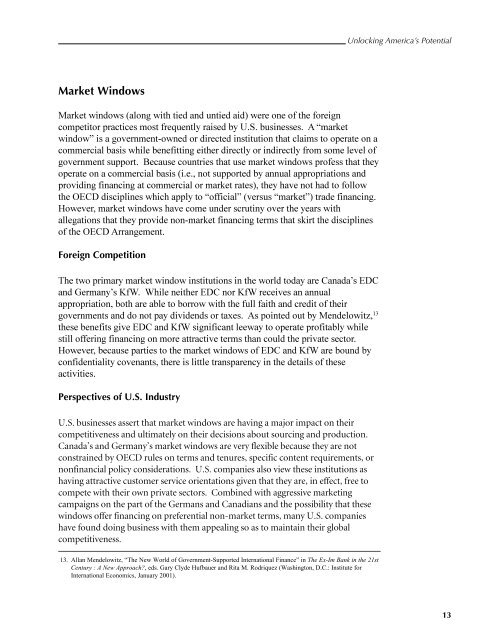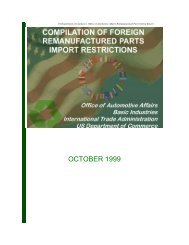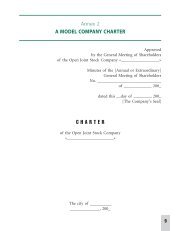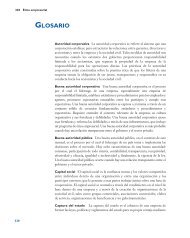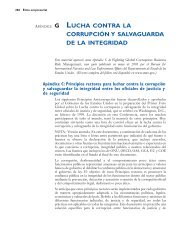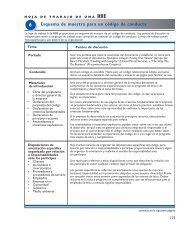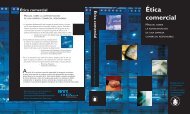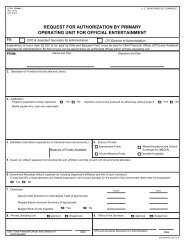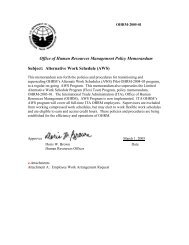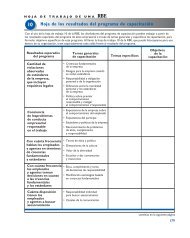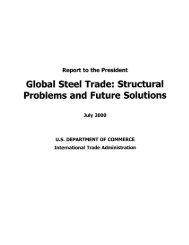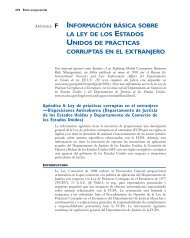National Export Strategy 2002 - International Trade Administration ...
National Export Strategy 2002 - International Trade Administration ...
National Export Strategy 2002 - International Trade Administration ...
Create successful ePaper yourself
Turn your PDF publications into a flip-book with our unique Google optimized e-Paper software.
Unlocking America’s Potential<br />
Market Windows<br />
Market windows (along with tied and untied aid) were one of the foreign<br />
competitor practices most frequently raised by US businesses A “market<br />
window” is a government-owned or directed institution that claims to operate on a<br />
commercial basis while benefitting either directly or indirectly from some level of<br />
government support Because countries that use market windows profess that they<br />
operate on a commercial basis (ie, not supported by annual appropriations and<br />
providing financing at commercial or market rates), they have not had to follow<br />
the OECD disciplines which apply to “official” (versus “market”) trade financing<br />
However, market windows have come under scrutiny over the years with<br />
allegations that they provide non-market financing terms that skirt the disciplines<br />
of the OECD Arrangement<br />
Foreign Competition<br />
The two primary market window institutions in the world today are Canada’s EDC<br />
and Germany’s KfW While neither EDC nor KfW receives an annual<br />
appropriation, both are able to borrow with the full faith and credit of their<br />
governments and do not pay dividends or taxes As pointed out by Mendelowitz, 13<br />
these benefits give EDC and KfW significant leeway to operate profitably while<br />
still offering financing on more attractive terms than could the private sector<br />
However, because parties to the market windows of EDC and KfW are bound by<br />
confidentiality covenants, there is little transparency in the details of these<br />
activities<br />
Perspectives of U.S. Industry<br />
U.S. businesses assert that market windows are having a major impact on their<br />
competitiveness and ultimately on their decisions about sourcing and production.<br />
Canada’s and Germany’s market windows are very flexible because they are not<br />
constrained by OECD rules on terms and tenures, specific content requirements, or<br />
nonfinancial policy considerations. U.S. companies also view these institutions as<br />
having attractive customer service orientations given that they are, in effect, free to<br />
compete with their own private sectors. Combined with aggressive marketing<br />
campaigns on the part of the Germans and Canadians and the possibility that these<br />
windows offer financing on preferential non-market terms, many U.S. companies<br />
have found doing business with them appealing so as to maintain their global<br />
competitiveness.<br />
13. Allan Mendelowitz, “The New World of Government-Supported <strong>International</strong> Finance” in The Ex-Im Bank in the 21st<br />
Century : A New Approach?, eds. Gary Clyde Hufbauer and Rita M. Rodriquez (Washington, D.C.: Institute for<br />
<strong>International</strong> Economics, January 2001).<br />
13


